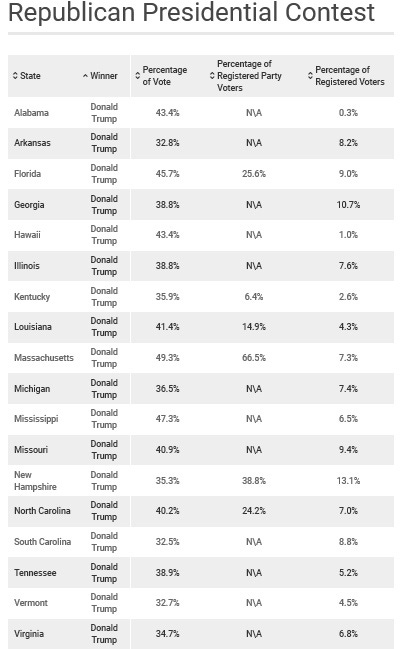What the Primaries Mean
Donald Trump has wildly exceeded electoral expectations at every stage of the election. But betting markets still say he has but a 20% chance of winning the presidency. Isn’t Trump’s record of success after success strong evidence that he’s far more popular than normal measures suggest? Most obviously, couldn’t there be preference falsification at work on a mass scale?
Maybe, but there’s a simpler story. Trump has an enviable track record in the Republican primaries. But hardly anyone votes in those primaries! His victories notwithstanding, most of Trump’s victories were backed by less than 10% of registered voters. These results from late March omit the latest primaries, but still show the big picture.

Of course, the same goes for every primary candidate. Hillary too has received few actual votes so far. The key distinction: For well-established candidates, we have prior measures of their national appeal. Not so for Trump. Each of his victories has confirmed his unexpectedly strong appeal to politically active Republicans; it’s no fluke. But he’s yet to demonstrate appeal to a broader audience, so betting markets remain the smart bet.
Disagree? I’m happy to bet against Trump at even odds with my usual interface.
The post appeared first on Econlib.

